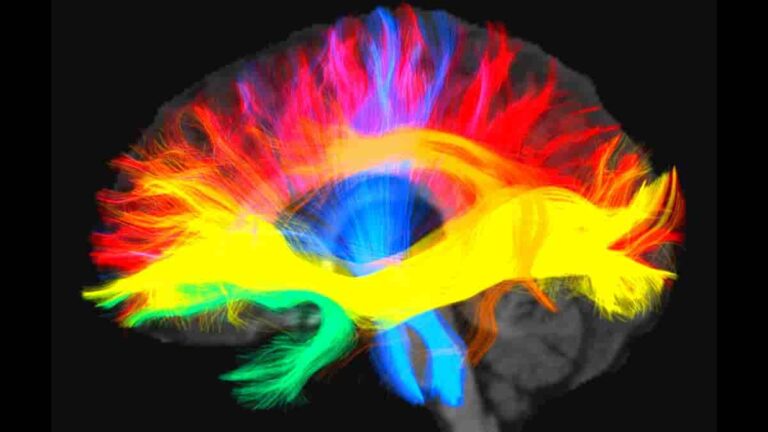Scientists at the Max Planck Institute for Human Cognitive and Brain Sciences in Leipzig discovered evidence that the language we speak shapes brain connectivity, which may underpin how we think. They examined the brains of native German and Arabic speakers using magnetic resonance tomography and discovered differences in the wiring of the language regions in…
Tag: language
Chimpanzee and Bonobo Gestures Can Be Understood by Humans
According to a study from the University of St Andrews, humans retain an understanding of gestures made by other great apes even though we no longer use them ourselves. The discovery of great ape gestures was the first evidence of intentional communication outside of human language, and over 80 such signals have now been identified.…
Forgotten First Languages Wire Brain For Second Language
If you spoke Chinese or some other language as a young child but don’t speak it now, you probably assume you’ve forgotten it. But a recent study suggests your brain hasn’t. In fact, that “forgotten” first language could have a lot to do with what goes on in your brain when you speak today. Researchers…
Neural Communication Pathways for Tone of Voice Discovered
The connecting pathways by which the areas of our brain communicate with one another when we perceive subtle changes in the tone of voice of a speaker have been decoded, for the first time, by researchers from the Leipzig-based Max Planck Institute for Human Cognitive and Brain Sciences. The research results of the Otto Hahn…
How Your Brain Separates Talking Ability From Writing Ability
Even though our uniquely human ability to write evolved from our ability to speak, writing and talking are now such independent systems in the brain that someone who can’t write a grammatically correct sentence may be able say it aloud flawlessly, according to research from Johns Hopkins University cognitive scientist Brenda Rapp. For example, out…
Lost Mother Tongue Stays In The Unconscious Brain
The mother tongue of an infant lays down deep neural patterns that the unconscious brain keeps years later. This is true even if the child totally stops using the language, as in cases of international adoption, according to a new study from the Montreal Neurological Institute and McGill University. “The infant brain forms representations of…
Does Background TV Harm Toddlers’ Language Development?
It is already known how important parent input is in developing children’s language skills, and that a reduction in child-directed language could have a negative impact on their language development. New research suggests that the presence of background TV is a significant factor in reducing this vital input, affecting both the quantity and quality of…
Grey And White Matter Abnormalities In Children Who Stutter
Children who stutter have less grey matter in key regions of the brain responsible for speech production than children who do not stutter, according to a new study by a University of Alberta researcher. The findings augment our understanding of how the brain is built for speech production and why people stutter. They also affirm…
Bilingualism Enhances Attention And Fine-tunes Hearing
A new Northwestern University study provides the first biological evidence that bilinguals‘ rich experience with language fine-tunes their auditory nervous system and helps them juggle linguistic input in ways that enhance attention and working memory. Northwestern bilingualism expert Viorica Marian teamed up with auditory neuroscientist Nina Kraus to investigate how bilingualism affects the brain. In…


